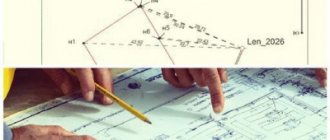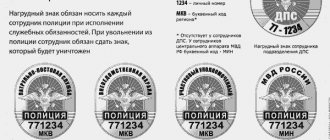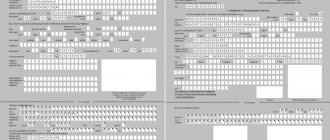Pravozhil.com > Real estate registration > What types of property rights are there in the Russian Federation and what every citizen needs to know
Before considering what types of rights to property there are, it is necessary to determine what is meant by the latter. The right to property is the most common system that surrounds each of us in the modern world. Despite the fact that the classification of such powers has no practical significance, each of us needs to understand it in order to navigate the law and prevent violations of freedoms.
The concept of property in Russian legislation
Property may also be of an intangible nature
What is covered by the term “property”? To do this, you must indicate Art. 128 of the Civil Code of the Russian Federation, which indicates the types of objects - things, cash, securities, other property.
Based on this, we see that there is no specific definition in the law; it is a collective concept that is distinguished by its heterogeneity and versatility. In the broadest sense, property is considered as a set of things and responsibilities that correspond to them.
There are quite a few articles in the Civil Code in which this concept appears, but there is no exact wording anywhere. In this regard, you need to understand several basic points regarding the definition of property:
- This is a system of material things and values that are at the disposal, use and possession of a person, that is, they are his property.
- This is a certain set of things that are aimed at obtaining material benefits from third parties - these are assets.
- Things, duties that primarily illustrate their bearer.
Property rights: concept, characteristics, types
Property law (in the objective sense) is a set of legal norms that establish the ownership of things (property) to subjects of property rights, regulate the powers of these subjects in relation to these things and establish responsibility for their violations.
Property right (in the subjective sense) is the right of a specific subject to own, use and dispose of this property.
Comment
Property law can also be distinguished as a sub-branch of civil law, but in this material property law is not considered in this sense.
Property and obligations law
In civil law, it is traditional to classify legal relations according to the method of satisfying the interests of the authorized person into the following types:
- real:
- the interest of the authorized person is satisfied through his own actions: the owner owns, uses and disposes of his property, the obligated persons refrain from violations - do not act;
- are proprietary, absolute;
- obligatory:
- the interest of the authorized person is satisfied through the actions of the obligated person: the buyer’s interest in receiving the goods is satisfied by the actions of the seller in transferring the goods;
- are property (however, a number of scientists also allow non-property obligations), relative.
Characteristic features (signs) of property rights:
- the absolute nature of the protection (its bearer corresponds to the obligation of an indefinite number of persons to refrain from violating the property rights of this person);
- formalize the belonging of things to certain subjects (as distinguished from rights of obligation that formalize the transfer of things and other objects from one subject to another);
- their inherent right of succession (in the event of the transfer of a property right to another person (legal successor), the encumbrances of this right are also transferred);
- the object of property rights is only an individually defined thing (accordingly, things defined by generic characteristics, as well as objects of intellectual property, cannot serve as objects of property rights);
- the range of real rights (as opposed to obligations) is exhaustively outlined in the Civil Code (Articles 209, 216, 292, 334 of the Civil Code of the Russian Federation), or other federal law;
- proprietary rights are protected by special methods of protection.
Thus, property law is a subjective civil right that is absolute in nature, has a specific object and methods of protection, and includes, in addition to the rights of ownership, use and disposal of a thing (all together or separately), the right to follow.
Property rights: definition and main characteristics
Despite the fact that this phrase appears quite often in legislation, there is no structured understanding and definition for it. Scientists also have quite different approaches to considering this issue, and therefore it is necessary to determine the most general and complete provisions.
Property rights are, first of all, the ability to claim under any civil obligation. In simple terms, every citizen of the Russian Federation can own, use, and dispose of certain property, regardless of its shape, size and characteristics.
They are implemented on the basis of the inviolability of property, equality of the parties to the contract, autonomy and independence of the participants in legal relations. They are subjective, which means that they belong to each person individually and the process of their implementation completely depends on the will and opinion of the owner.
Property rights are closely related to the concept of property; one might even say that one does not exist without the other. Property does not exist without an owner; it necessarily belongs to someone. These common features and characteristics are especially important for each of us to understand, because apartments, cars, dachas, land and much more are our property.
Types of real rights
Property rights can be divided into two groups:
- property rights (includes possession, use, disposal);
- limited property rights (rights to other people's things - possession and use).
Property rights in the objective sense are a set of civil law norms that regulate and protect the state of ownership of material goods by specific persons.
In other words, this is a set of legal norms regulating relations regarding the appropriation and ownership of material goods to a certain person or persons, the exercise by the owner of the powers of ownership, use and disposal of a thing by his own will and in his own interest, regardless of other persons.
Ownership in the subjective sense is a measure of the possible behavior of the owner; This is the legally secured ability of the owner to own, use and dispose of the thing belonging to him.
A limited property right is the right of a non-owner, in one or another limited by law, to use someone else’s, usually immovable, property in his own interests without the participation of the owner of the property (and sometimes even against his will). Art. 216 of the Civil Code of the Russian Federation includes:
- the right to lifelong inheritable ownership of a land plot (Article 265);
- the right to permanent (indefinite) use of a land plot (Article 268);
- easements (Articles 274, 277);
- the right to manage property (Article 294);
- the right to operational management of property (Article 296).
Types of property rights
The main types of rights in this area are real, obligatory and intellectual, each of which will be discussed further.
Note! The classification of the entire set of rights into three categories has no relation to taxation issues or other legally significant actions. The above division is more theoretical in nature and is aimed at forming a general idea of property rights.
Rights to the results of intellectual activity, means of individualization
This category is the newest and most dynamically developing category, which is increasingly used in the modern world, and is regulated by Part 4 of the Civil Code of the Russian Federation.
Intellectual property refers to two components - the results of human activity and means of individualization, which are equated to the former. A person actively engaged in creative, scientific or other intellectual activities can create an object with ownership rights to it. Practice shows that the main products of this type of property are:
- Databases, registries and systems.
- Phonograms, audio recordings, performances.
- Invention, experimental results, models and industrial samples.
- Names for brands and companies, service marks and goods.
- The results of literary activity, art or science.
- Software for technology.
Rights to the results of a person’s intellectual work consist of several categories - the ability to use, dispose of and protect one’s works from illegal taking and use by third parties. Such powers can belong to either one person or a group of people, if the creation was published as a group.
Every creator can not only exercise their rights, but also protect them. To do this, a person’s right to a specific object or product is established in court, with the provision of evidence confirming the fact of ownership.
Note! The very results of a person’s activity or individualization cannot be transferred from one person to another or alienated. Only rights to the results of activities, or material media with them, participate in civil circulation.
Characteristics of rights of obligation
The group under consideration includes a system of rights that is closely related to property relations that arise in the process of implementing civil contractual relations. A special feature is the presence of two parties - the creditor and the debtor.
It is important to understand that such an obligation is the relationship between the parties in the process of economic turnover of goods, that is, the debtor has an obligation to transfer property or sell a service, work, make a payment, or refuse any action.
The creditor has the right to demand the timely fulfillment of his obligations by the debtor. There is a state of interconnection and dependence of one on the other, that is, rights of obligation give the creditor the opportunity to rule over the debtor.
Forms of ownership in the economy
A modern market economy is an economy with mixed ownership. Therefore, the law recognizes various types of property, including mixed ones.
Forms of ownership are discussed in detail in high school social studies classes. We will consider only the main classifications.
Forms of ownership in the Russian Federation are divided into the following types:
- State federal - natural resources included in economic circulation, means of production, information, that is, everything that is under the jurisdiction and disposal of the state and under its responsibility.
- State regional - all the same, transferred to the subjects of the Federation.
- Municipal property, which is under the jurisdiction of local governments.
- Private - property of citizens and legal entities.
- Property of public organizations.
From the point of view of legal regulation, property can be divided into the following groups:
- Real estate - land, buildings, structures, infrastructure.
- Movable property is something that can be moved: machinery, equipment, tools.
- Intellectual property is a product of human mental activity: scientific works, manuscripts, inventions, discoveries, achievements in art and literature.
Classification of forms of ownership by legal regime:
- Based on the subjects (owners) of property - individual citizens, groups, legal entities, the state.
- According to the form of appropriation - individual, collective and state property.
- According to the composition of subjects (owners) - individual, group, public.
Types of property based on numerical characteristics:
- Private property is something that belongs to one person.
- Collective property is something that belongs to a group of people, and each of them has some part in this property.
- Public property is something that belongs to everyone.










